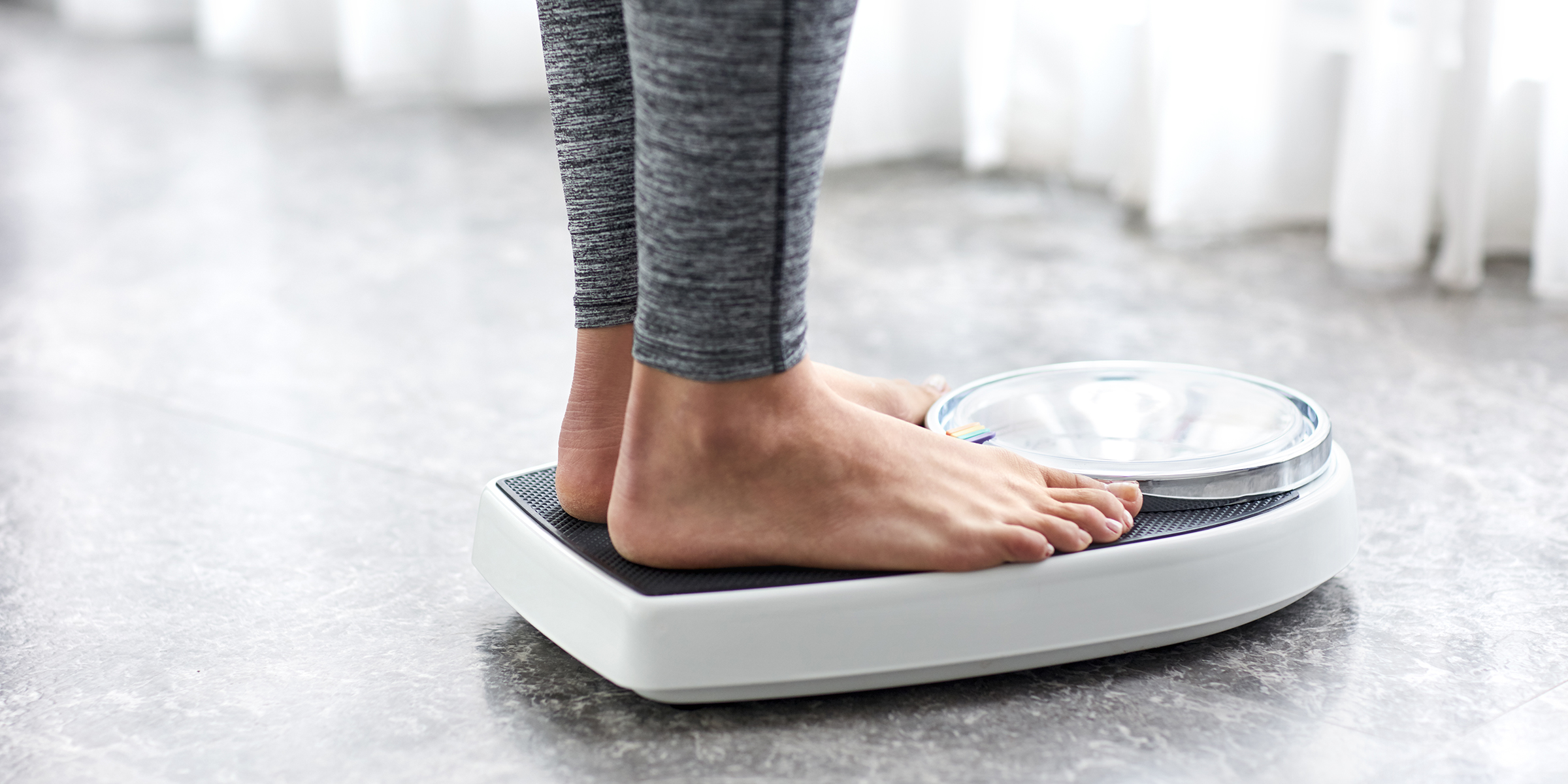You hop on the scale and notice the numbers shift to the right; an exhale of frustration escapes your lips. Before you get down on yourself, realize that the scale might not mean that much at the moment. The number on the scale doesn’t indicate the amount of fat or muscle in your body. The scale can be very misleading, especially if you’re a woman. Women’s hormones and body weight fluctuate throughout the month, especially around the time of your menstrual cycle.
If you’re losing inches and looking better, yet the scale isn’t budging it can be an indicator that your losing fat and gaining muscle. Dense muscle tissue takes up more space than fat. So, you may be the same exact weight as someone but you may look smaller.

Also, it can take 4 to 6 weeks to actually see a change on the scale. This is due to the fact that muscle weighs more than fat so you might be losing fat while gaining muscle. Especially, if you do a combination of cardio and weight lifting.
If you notice yourself able to run longer, lift heavier, and perform at a higher level – you’re making great progress. The more you’re able to do, the closer you are to achieving your fitness goals.
Weight is not the most important aspect of your fitness journey there are so many markers and indications of your improvements that have nothing to do with the number on the scale.
Many of us jump on the scale to determine one of two things: fat or thin. It isn’t healthy to base your physique based off the number on the scale.
The scale can be a great way for you to see if you are making progress when you pair that with taking body measurements to ensure accuracy.




